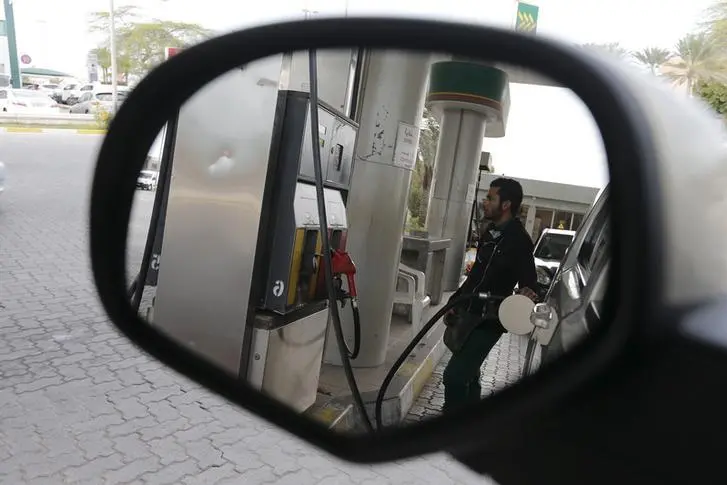PHOTO
Bahrain's petrol pumps could turn ‘smart’ under a new proposal approved by the Southern Municipal Council ... but the suggestion has fuelled a furious debate on social media.
The proposal by councillor Abdulla Abdullatif would require motorists to install reader chips on their fuel lids at a cost to be decided.
The technology would be linked to the Sadeem fuel payment mobile application, with options for the type of fuel and amount. Once the tank is filled the amount purchased would be automatically deducted from BenefitPay, debit or credit cards.
The proposal has sparked heated debate with fears that petrol attendant jobs could be lost as stations introduce automated arms or robotics to service customers.
In an attempt to pacify the critics, Mr Abdullatif said: “Human beings are not being made redundant. My proposal doesn’t warrant sacking current employees and replacing them with automated arms or robots.
“It simply aims to introduce safer fuelling without the need for any window to be opened or attendants having to be informed about anything. They would just open the lid and insert the hose before using a portable device for the reader chip on the lid.
“The process would save time and cut down the lengthy queues of people waiting to fuel up.”
Electronic payments are growing in popularity across the kingdom, inspired mostly by Covid-19 precautions and consumer convenience.
“The proposal presented by my colleague builds on the easy electronic pay concept and there’s nothing fancy about introducing automated arms or robotics as people have misunderstood the situation,” said council chairman Bader Al Tamimi.
“Kuwait is currently testing the reader chip concept and Bapco could approach them for more information. We don’t need to copy things, we could do it our own way as we advance the fuel pump service,” he added.
“Things progress and evidenced by the use of barcode readers at stores, online government services and outlet sales, and the door is open for other services to be explored.”
However, parliament public utilities and environment affairs committee chairman Mohammed Buhamood said Kuwait was planning to scrap the similar use of readers due to opposition over their cost.
“Unless the car comes with the reader, then people don’t want to install one,” he claimed. “Yes, Sadeem needs to advance its electronic services but having people buying one is a burden many can’t afford – Kuwait faced uproar over this.
“Again, I am worried that the more councillors push for technical advancements that fuel attendants could be replaced with automated arms and robots, on the lines that their introduction could save time and cut costs.”
The suggestion is not as far fetched as it may appear. Petrol pumps are about to become more advanced and autonomous fuel pumps are the next big thing, according to technology experts.
The device at the pump will be a single purpose robot that will only operate to fill a petrol tank.
One of the companies, which has been working on this concept is Fuelmatics. Spokesman Sten Corfitsen said: “People feel that refuelling is a boring necessity. Therefore, it will not come as a surprise if people opt for this system that allows them to take care of this without much effort. A number of companies are currently working on this system.”
It is quite simple; a driver takes a vehicle to the pump, makes a payment via a smartphone app or a touchscreen. Once the payment has been processed, the robot will get to work; it will open the fuel tank and spin the cap off.
The filling up of the tank stops either when the app says so or when the sensors detect that it is full. The spout’s withdrawal begins and once that’s done, the driver is good to go.
© Copyright 2020 www.gdnonline.com
Copyright 2021 Al Hilal Publishing and Marketing Group Provided by SyndiGate Media Inc. (Syndigate.info).





















